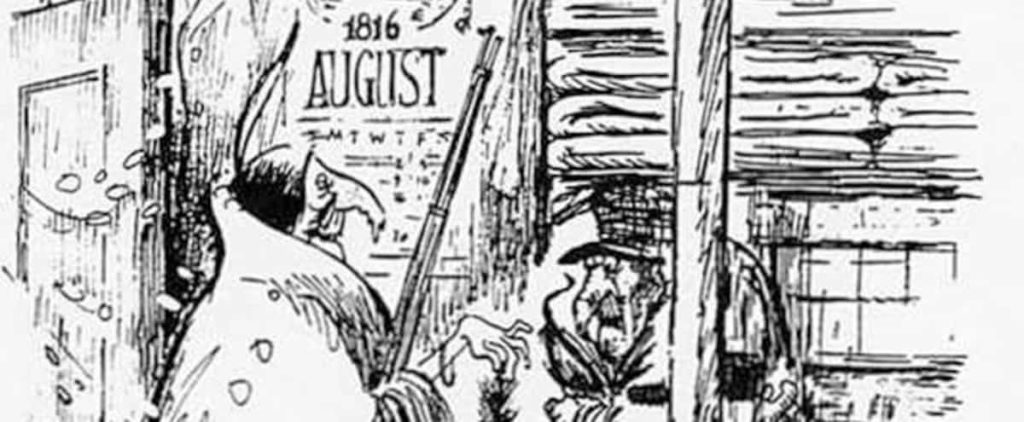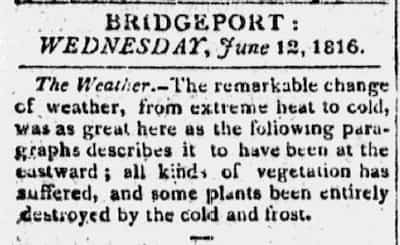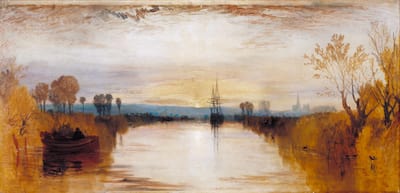
Do you think summer 2023 is gray and rainy? Be comfortable! In 1816, parts of Western Europe and North America experienced a year known as the “year without a summer.” The months associated with summer were so cold and gray that farmers in parts of Quebec even saw ice on the lakes. Imagine the consequences on agricultural production. What explains this weather anomaly at the time?
Volcanic eruptions with dramatic effects on climate
In the years before 1816, there were many volcanic eruptions, especially in the Philippines, Japan, and the Caribbean. They were violent enough to throw a lot of ash and dust into the atmosphere, partially blocking the sun’s rays. The most significant and most dangerous of these eruptions, however, occurred in April 1815 on the Indonesian island of Sumbawa, more precisely Mount Tambora. It lasted for several days and is considered one of the most powerful volcanic eruptions of which we have geological and historical records.
These eruptions, and especially the accumulation of dust in the atmosphere, had devastating consequences for the climate in Europe and North America. Dense dust in the sky blocked the sun’s rays, causing average temperatures in the Northern Hemisphere to drop by about 1 degree and even lower at certain times during the summer. If the most direct effects on the climate were observed in 1816, part of the world would experience this climate change effect for about three years.
Agricultural production was disrupted
Although the consequences are more severe and direct in Northern Europe and North America, this general drop in temperatures, even in summer, has had a disastrous effect on much of the planet, especially in relation to agricultural yields. Monsoons in India and China have been disrupted and caused monster floods that inundated crops, postponed sowing for weeks or literally rendered some fields uncultivable. Snow has even been observed in Taiwan in the middle of summer! Chinese records indicate that agricultural performance in some areas, such as Yunnan, was so poor that people were forced to suck white clay to get enough food before the next harvest season.
In Europe, the Netherlands, England, Ireland and Switzerland, mid-summer cold winds and snow fall, this condition is also observed in some American states on the east coast such as Quebec and Vermont, where people from some villages have arrived. To spend the winter eating porcupines and boiled nettles. In May and June, heavy frosts also killed crops in New York and New Hampshire, with frost on the ground in mid-June. In North America, the year 1816 was known as the “year of poverty” because of the cold winds and lack of sunlight that affected agricultural productivity.
Famine for the inhabitants of L’Islet
The inhabitants of many parts of Quebec also suffered greatly from this heat and lack of light, which prevented good harvests. Quebec newspaper Canadian Spectator It also reports snow in mid-June and lack of greenery for livestock. With much of Lower Canada suffering from food shortages since the winter of 1816–1817, on December 11, 1816 the inhabitants of L’Islet wrote and signed a petition addressed to Governor John Cope Sherbrooke. They are asking him for emergency food aid for their community. They describe the crops as miserable, the grains damaged by the surprising and frequent frosts of this unusual summer.
If the summer of 1817 had been warm and with little rainfall, it would have been necessary to wait until 1818 for the global food crisis to subside due to these volcanic eruptions.








More Stories
Quebec City: Patrick Pocket wants to tax cyclists who enjoy winter cycling
Change in schools in Basse-Saint-Laurent: Nuts and peanuts now allowed in lunch boxes
He buys Mexico to live there with his family without guns or armed guards